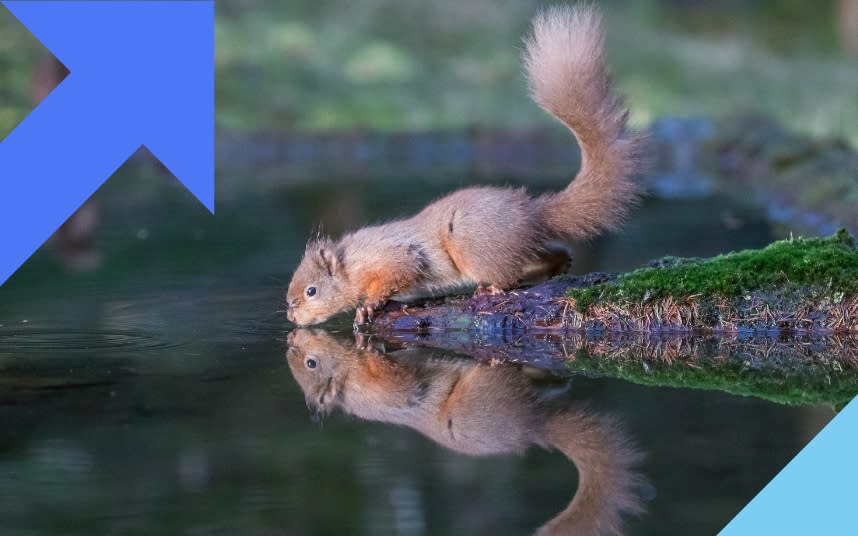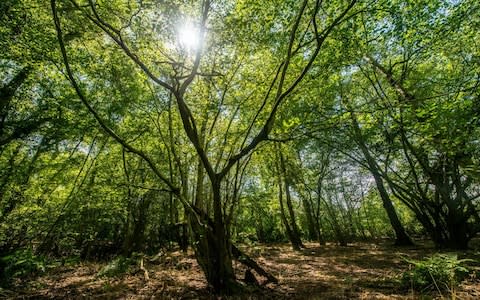Nature should be our greatest ally in the fight against climate change

Nature has a vital – though often overlooked – role to play in preventing the worst impacts of climate change.
Creating, restoring and properly managing our natural landscapes has the potential to remove a huge amount of carbon from the atmosphere. "Nature-based solutions" to climate change are, globally, estimated to be able to provide 30 per cent of the mitigation required by 2030 to stay below 2 degrees of warming.
Climate change and biodiversity loss are fundamentally linked. The 2019 State of Nature report found that 41 per cent of the UK’s species have declined since 1970, with climate change being one of the main drivers.
Simultaneously, as a country, we have lost 97 per cent of our meadows since the Second World War, 80 per cent of our chalk grasslands, and more than half of our ancient woodland – all of which are vital habitats for wildlife and effective carbon sinks.
When nature is managed well, it takes carbon out of the atmosphere and wildlife is able to flourish. A prime example of this is peatland – which covers 12 per cent of the Britain's land area, is a refuge for numerous rare species, and contains more carbon than the forests of the UK, France and Germany combined.
However, due to unsustainable management practices, such as burning, much of our peatland is in poor condition. Degraded peat now releases the equivalent emissions of 140,000 cars per year when it ought to be a net carbon sink. We need to support farmers to create more favourable environmental conditions for peatland, for instance by rewetting the soil, so that new peat deposits start to form.

Trees, of course, remain one of the most effective ways of capturing carbon but despite this only 13 per cent of our nation is tree-covered compared to an EU average of 35 per cent. We must incentivise farmers and landowners to plant more trees on their land. To create the greatest benefits for wildlife, there also needs to be a particular effort to plant native forests, and to prioritise the protection of existing areas of ancient and semi-natural woodland.
We should not, though, overlook the rarer carbon-rich landscapes such as saltmarshes which sequester three times more carbon than trees. Coastal wetlands, which are at risk of climate-related impacts including erosion, sea level rise and storm surge, should also be a focus of attention and additionally we should maintain our permanent grasslands, which have high levels of soil carbon and biodiversity value. These habitats and more all have a crucial role to play in using our land to reverse dangerous changes to our climate.
Restoring our natural environment also brings with it many additional benefits – reduced air pollution, improved mental and physical health and wellbeing, better access to green spaces and more opportunities for outdoor recreational activities. The restoration of our landscapes would also provide opportunities for school visits, community events, partnerships with local hospitals and more, as well as supporting rural employment.
Last month at the UN, the Prime Minister announced a doubling of our international aid spending to support developing countries to tackle climate change. He earmarked a large proportion of that funding for nature-based solutions, such as protecting and restoring forests. At home the Government’s Agriculture Bill will create powers to pay farmers and land managers to deploy nature-based solutions, like tree planting and peatland restoration.
The UK has the expertise, technology and political will to become a world leader in utilising nature-based solutions to tackle climate change. In the run-up to the Glasgow summit this will of particular importance as we prepare to open the "Last Chance Saloon". Diplomatic efforts can complement the global ‘new deal for nature’ that the UK is currently negotiating with other countries ahead of the 2020 Convention on Biological Diversity summit in China.
We have a net-zero target and we now need the right policies and investment to get us there so that we can rehabilitate our wild places and leave truly a green and pleasant land to our children and to our grandchildren.
Roger Gale is the Conservative MP for North Thanet
For more from Refresh, including lively debate, videos and events, join our Facebook group here and follow us on Twitter at @TeleRefresh

